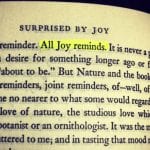Eleanor Oliphant is Completely Fine by Gail Honeyman
This was a set text for my daughter’s year 10 English class and I decided to read it with her. It’s the story of Eleanor Oliphant, a woman in her late 20’s who is a socially awkward, friendless, borderline alcoholic, and who lives on her own. She has endured a terribly traumatic childhood at the hands of her abusive mother, who she continues to speak with every week. And, even though she believes she is totally fine, she is far from it.
But then a work colleague, Raymond, begins to show her kindness, and with his encouragement Eleanor begins to engage with her past, and the world around her.
Our modern, hyper-connected society is filled with Eleanors. What they need is someone to show them kindness. We can be that someone. And we can point them to the Great Someone who can heal their broken hearts and bind up their wounds.
Given its very confronting themes, some of the parents at my daughter’s school didn’t think the book should have been on the syllabus. But I’m so pleased it was. Eleanor’s world is our world. That’s the point Gail Honeyman is making. Our modern, hyper-connected society is filled with Eleanors; apparently “completely fine” people who are in fact disconnected from others, living alone, scarred by trauma, and broken. What they need, even if they don’t realise it, is someone to show them kindness. We can be that someone. And we can point them to the Great Someone who can heal their broken hearts and bind up their wounds.
The Hobbit by J R R Tolkien
Perhaps I was missing something, but I found this an incredibly tedious book to read. It was nice to finally meet some of the characters I’ve heard people speak about (Gandfalf, Bilbo Baggins, Gollum, Smaug) but I just couldn’t bring myself to care about what was happening to them all.
The Rosie Project by Graham Simsion
Don Tillman is a genetics professor who lives an unusual and highly structured life. He realises he would do well to have a female partner. So, he composes a questionnaire for prospective partners to complete in the hope that their answers will help him identify those who are suitable. Then he meets Rosie—a woman who is in every way unsuitable for him. You can guess where this ends up. Hilarious and poignant. And then hilarious again.
The Ruin by Dervia McTiernan
This gritty, dark, police procedural set in Ireland centres around detective Cormac Rielly, a man of high principles who is also (for once in this genre) also faithful to his partner. The action is tense; the characters are real; the conclusion very satisfying.
Among the Thugs by Bill Buford
Published in 1990, this horrifying yet fascinating non-fiction study is the work of an American journalist who spent eight years befriending some of the worst football hooligans in Britain. Buford went with them to many football matches in the UK, and also travelled with them throughout Europe when they (and he) clashed violently with police (in Sardinia he was violently beaten by police).
Buford’s book attempts to make sense of why individuals become crowds, and why crowds—generating a mind of their own—become violent. Perhaps without knowing it, Buford has also given us a case study of the darkness that lurks in all of us. Speaking of the society he inhabited in the 1980’s he writes:
This bored, empty, decadent generation consists of nothing more than what it appears to be. It is a lad culture without mystery, so deadened that it uses violence to wake itself up. It pricks itself so that it has feeling, burns its flesh so that it has smell. (p. 262).
A book for today, yet not for the faint of heart.
The Whole Christ by Sinclair Ferguson
This book examines a peculiar Scottish theological disagreement from the 1700’s which became known as “the Marrow Controversy.” But Ferguson is doing more than just giving us historical facts. He is helping us to see how our preaching very often falls into either legalism, or antinomianism. Chock full of practical pastoral advice, The Whole Christ has helped me—more than any other book I’ve read—to be a more Christ-exalting preacher.
Chock full of practical pastoral advice, The Whole Christ has helped me—more than any other book I’ve read—to be a more Christ-exalting preacher.
When the Darkness Will Not Lift by John Piper
How can I be a spiritual help to those in my church family who are labouring beneath the could of mental illness? This little book has been a wonderful answer to me. Piper contends that,
For most people who are passing through the dark night of the soul, the turnaround will come because God brings unwavering lovers of Christ into their lives who do not give up on them. (p. 69)
He also writes that,
You cannot persuade a depressed person that he has not been utterly rejected by God if he is persuaded that he has been. But you can stand by him. And you can keep soaking him …. in the “benevolence, mercy, goodness, and sympathy” of Jesus, and “the sufficiency of the atonement,” and “the fullness and completeness of Christ’s justification. (p.74)
At only 80 pages it can be read in a single sitting.















